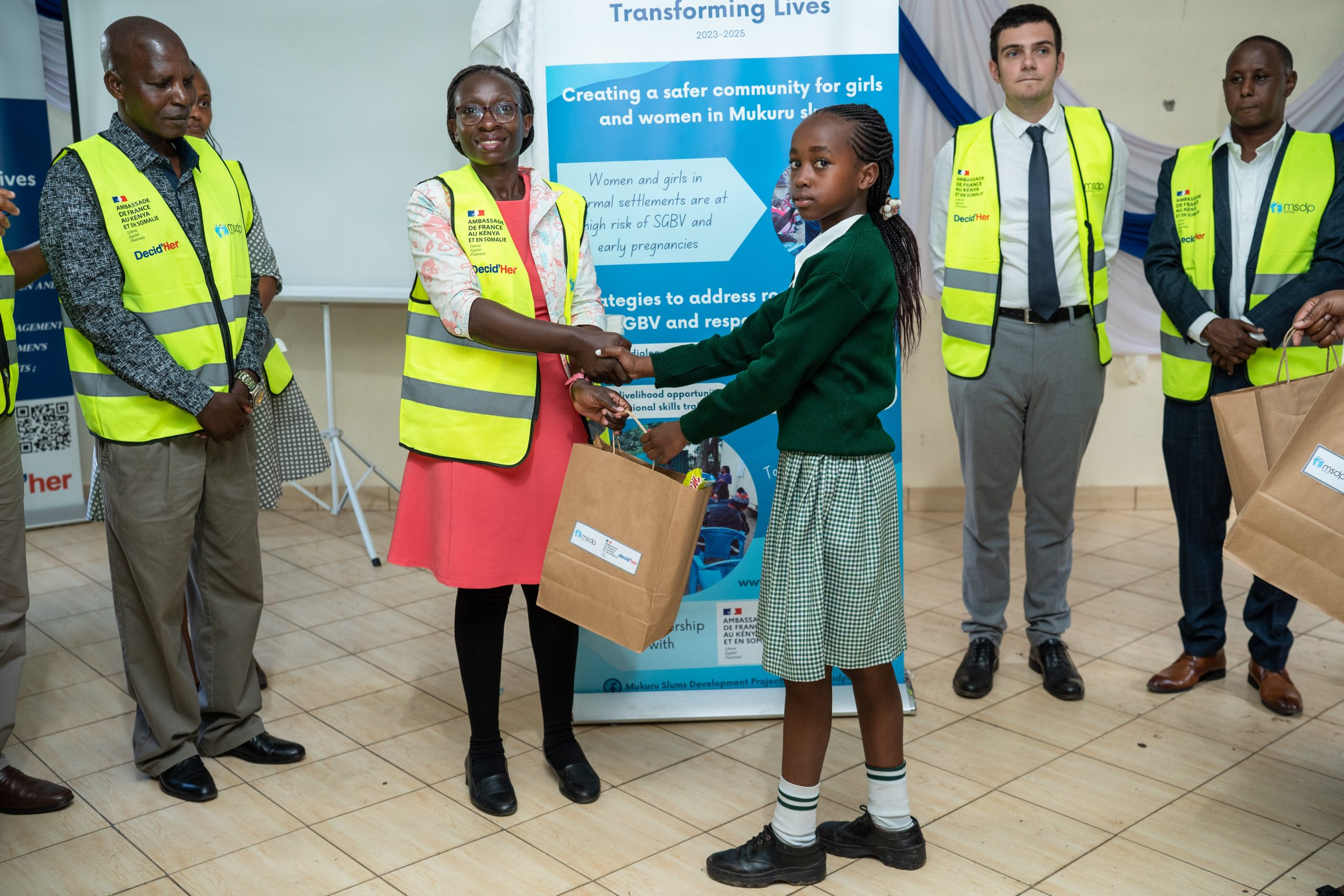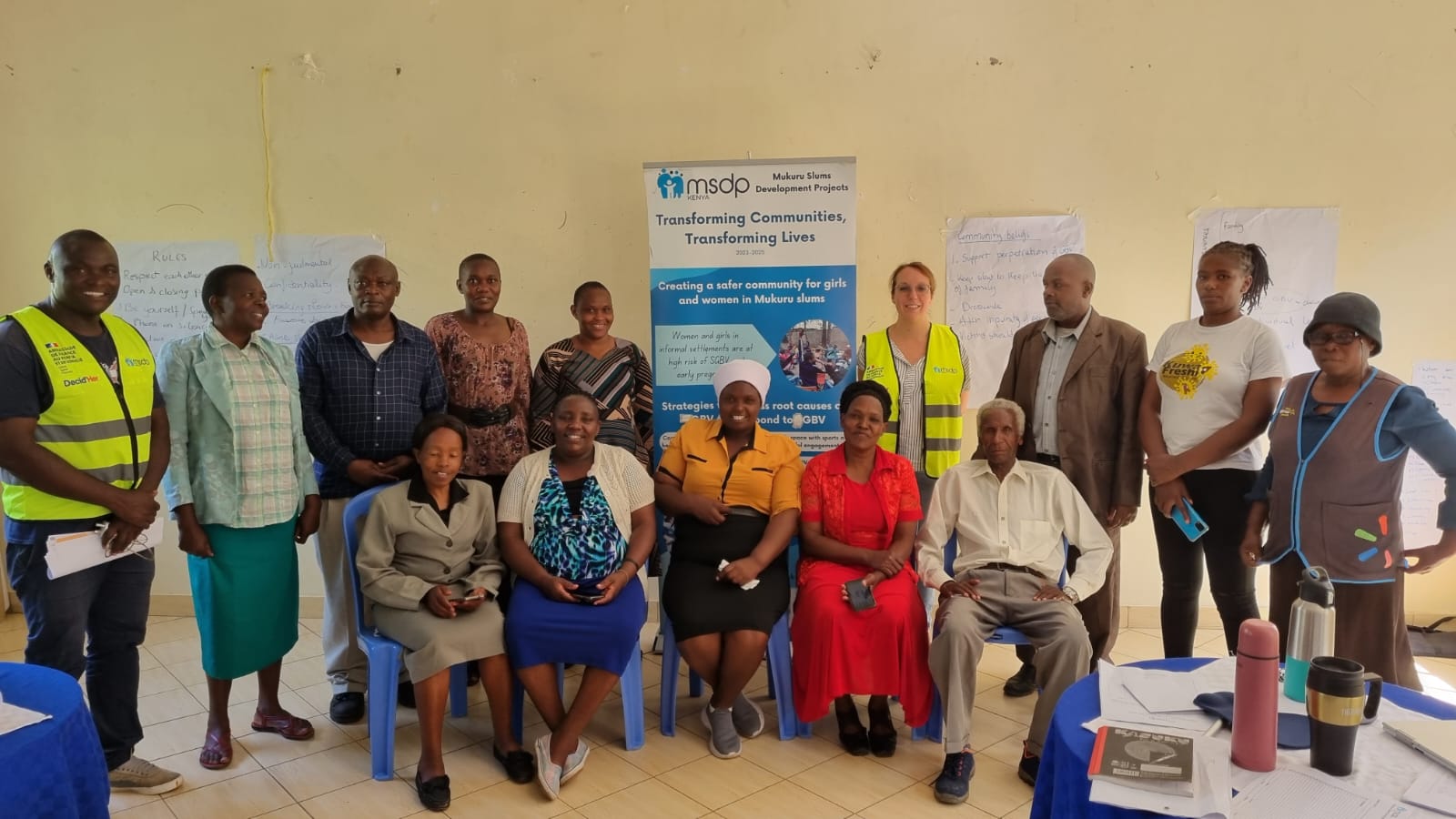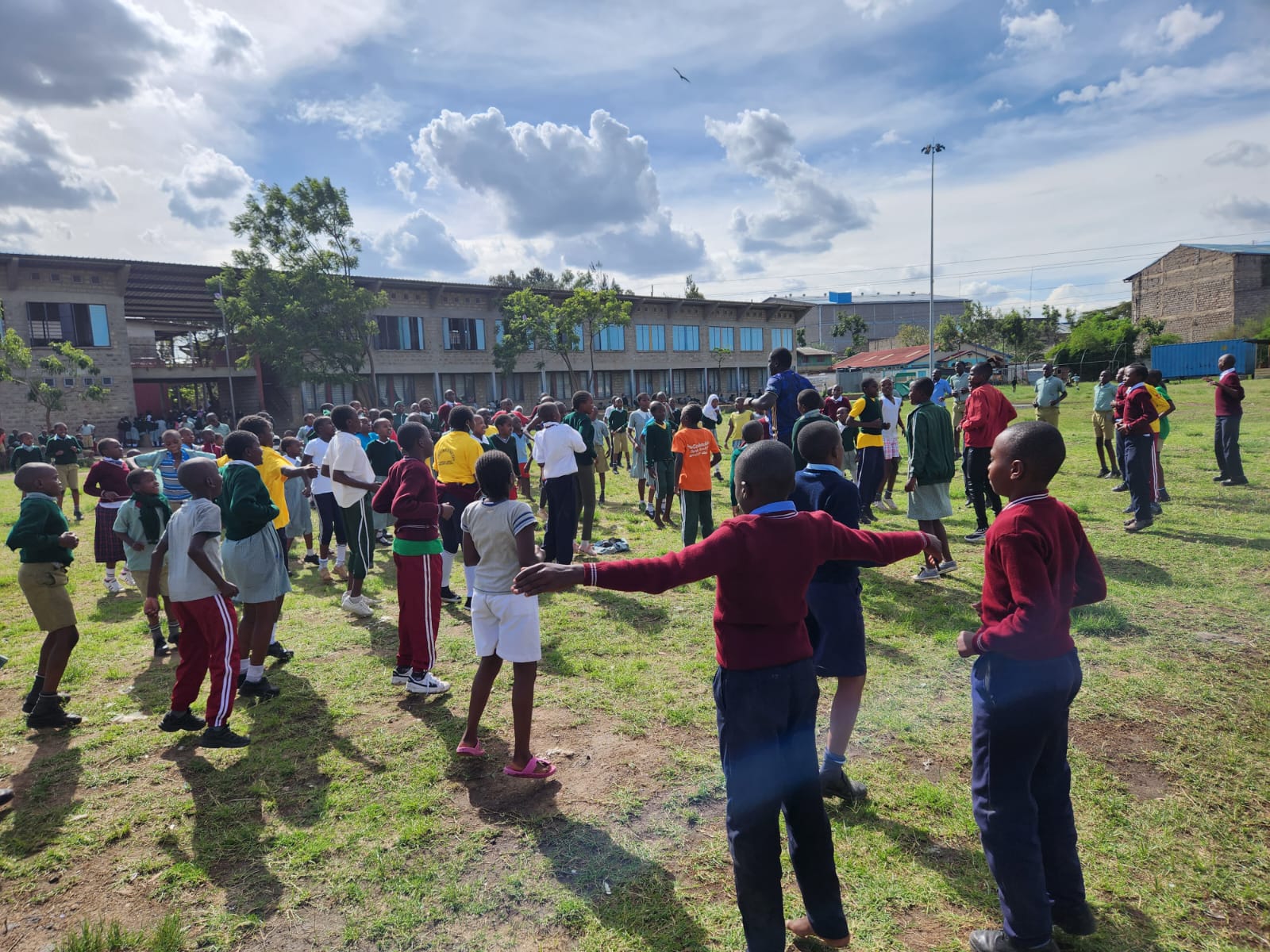Who We Are
MSDP, more than 20 years’ experience at grassroots level
MSDP has a track record of working together with Mukuru’s community to uplift poverty among informal settlement residents. The unique model of MSDP is to work holistically with right holders such as person with disabilities, women, teenage mothers, youth, street connected children and caregivers.
The primary focus of MSDP’s programming is to increase social and economic opportunities for children, women and youth, ensuring access to quality education, safeguarding social protection for women and children, and development of life skills among the young generation.

Working closely with local stakeholders and right holders
- MSDP primary stakeholders’ engagement is with right holders (Mukuru residents) who are involved in every stage of programming. MSDP believes in the growth and resilience of project participants, that is why MSDP consistently invests in economic and social empowerment programmes.
- MSDP works in close collaboration with local authorities including the area chief, CHPs (Community Health promoters), Makadara sub-county Ministry of Health, Ministry of Youth and Children’s office Makadara.
- MSDP is the partner of choice for many NGOs and international partners seeking to partner with organizations in Mukuru for community engagement and community access. This is due to MSDP’s strategic location inside Mukuru slums but also because MSDP is well respected and supported by the surrounding community.

MSDP’s Governance
MSDP is managed by a passionate and competent Board of Directors. Day to day activities are led by the
Programme Coordinator, overseeing three main Departments:
-
The Programs department directly implements donor funded projects
-
MUST – Mukuru Skills Training Centre delivers quality vocational training to youth
-
The administration department provides a solid foundation to the running of the organisation and social enterprise
MSDP’s history
-
Mukuru Slums Development Project (MSDP) has more than twenty years of experience in implementing social and economic empowerment projects in informal settlements targeting the most vulnerable population of Mukuru slums.
-
MSDP started in 2002 as seven (7) Community Based Organizations (CBOs) with funding from the Sisters of Mercy congregation. The CBOs came together and registered as a Kenyan NGO on 15th March 2006. MSDP has a track record of implementing donor funded projects with value for money and the will to have the highest impact on the most vulnerable people.
-
MSDP has a long term partnership with Dreikönigsaktion (DKA Austria) and Horizont3000 and have benefited from many capacity building opportunities to grow the organisation.
-
In the years 2010, Concern Worldwide and Goal Kenya were main funders. In the years 2020, the continuous support of DKA, Medicor Foundation and Horizont3000 has enabled MSDP to grow and get new funding from the French Embassy and LVCT. In order to pursue financial sustainability and resilience, MSDP is also developing their social business such as catering and hall hire.

Mukuru Slum geographic and social context
-
Mukuru slum, housing over 700,000 people, serves as a cheap and malleable labor force for nearby industries. Residents face pervasive poverty, struggling to meet basic needs like food, water, and shelter. This cycle of poverty leads to negative coping mechanisms such as drug abuse, crime, and early pregnancies. Limited access to social and economic opportunities perpetuates inter-generational patterns of abuse and neglect.
-
Additionally, there’s a psychosocial barrier hindering access to available opportunities, as residents lack belief in their worthiness and essential life skills. This disempowerment reinforces a survival-focused mindset, further trapping them in poverty.
-
Historical neglect by policymakers exacerbates the situation, with insufficient public services and school facilities deepening economic and social inequalities. Inflation and rural-to-urban migration driven by climate change compound these challenges, creating a complex web of socio-economic issues in the slum.
